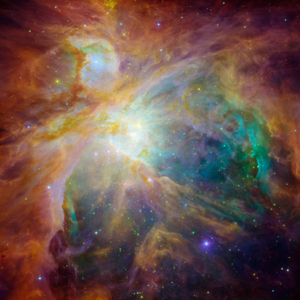Campus News
Star Party slated for Alumni Weekend
UC Observatories/Lick Observatory and the Department of Astronomy and Astrophysics are joining forces to put on a Star Party, replete with jazz, informative talks from foremost experts on astronomy, constellation identification, and telescopes for viewing celestial objects once night falls.

For the first time, Alumni Weekend will feature a night of stargazing, science, and music.
UC Observatories, Lick Observatory, and the Department of Astronomy and Astrophysics are joining forces to put on a Star Party, replete with jazz, informative talks from foremost experts on astronomy, constellation identification, and telescopes for viewing celestial objects once night falls.
“We want to bring Lick Observatory down the mountain,” said Ilse Ungeheuer, communications specialist at UC Observatories/Lick Observatory.
Lick Observatory on Mount Hamilton, just east of San Jose, is part of University of California Observatories (UCO), a multicampus research institution headquartered at UC Santa Cruz. It is housed in the Interdisciplinary Sciences Building, along with the Astronomy and Astrophysics Department.
Asher Wasserman is an astronomy graduate student and member of the UCSC Astronomy club, which owns 10 amateur telescopes that will be at the Star Party.
The event is not only an opportunity for interdepartmental collaboration, but an opportunity for alumni and the campus community to get together and explore the stars.
Wasserman studies the motions of stars in distant galaxies and how that motion relates to the composition of dark matter.
He says that while he is busy making progress in his highly technical niche, he relishes the opportunity to share in the general public’s fascination with moons, stars, telescopes, nebulas, black holes whirling planets, spinning galaxies, and the other wonders of extraterrestrial space.
“I definitely see that a fundamental part of my job as an astronomer is to convey to people what it is I do,” said Wasserman.
If the weather cooperates on the last Saturday in April, Wasserman will have the opportunity to do just that. He won’t be alone.
The Star Party—slated to begin at 7 p.m. on Saturday, April 29 at the Oakes College Lower Lawn—will feature a robust roster of speakers, including Chancellor George Blumenthal.
Blumenthal, a renown astrophysicist whose pioneering work on the theory of cold, dark matter remains a standard explanation for the formation of galaxy and galaxy clusters, will give the opening remarks.
Professor of Astronomy Ryan Foley, who studies supernovae or exploding stars, will give a brief talk about current research at UC Santa Cruz and Lick Observatory. He will be followed by Connie Rockosi, a professor and astronomer with Lick Observatory, who will introduce the telescope viewing of the evening and also elaborate on astronomy at UCSC and Lick Observatory.
In keeping with the spirit of UC Santa Cruz’s emphasis on interdisciplinary education, Ungeheuer, who previously worked as a dramaturg and artistic production officer for the Berlin State Opera in Germany, has enlisted the UCSC Student Jazz Ensemble to provide melodic ambience, featuring works about stars, night, and the universe. The concept of alternating talks and music from 7–9 p.m. will gently lead everyone into the dark night of a waxing crescent moon. Star gazing begins after 9 pm.
The event will also bring together three groups of amateur astronomers (UCSC astronomy students, the Santa Cruz Astronomy Club, and Lick Observatory Volunteer Amateur Astronomers) who will share their telescopes and knowledge with everyone. They will provide a range of telescopes for viewings and if the sky is clear, attendees will be able to see distant phenomena such as the Orion nebula, the open star cluster called the Beehive cluster, Jupiter, and the Galilean moons. Weather permitting, visible constellations in the night sky will be Ursa Major, Leo, Gemini, and Virgo.
The Galilean moons—Ganymede, Io, Europa, and Callisto—were the first celestial objects humans saw that were not visible to the naked eye. They were first seen by famed astronomer Galileo in 1610.
“I love the story behind the science,” Wasserman said. “Discovering the moons of Jupiter changed our view of the solar system and our place in it.”
Attendees are encouraged to bring their own chairs or blankets.
The event is planned to run through 11 p.m. About 200 stargazers are expected to attend. The event is open to all alumni, and the campus community. Please register online.